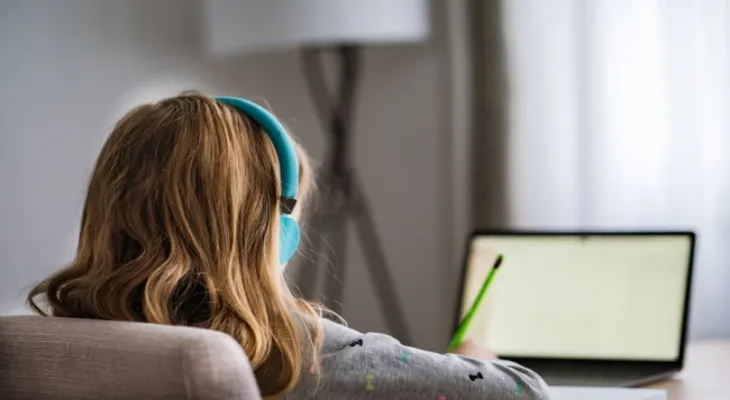Search here
Newspaper
Search here

Arab Canada News
News

Published: December 28, 2020
From sending text messages to cheating friends to downloading apps that broadcast answers, teachers say online learning has provided a wide range of tech-based solutions to doing the actual work.
Olivia Melita, a math teacher at a high school in Thornhill, Ontario, said she realized something was wrong in late September when many students submitted tests with matching solutions using a method she and her colleagues did not teach.
She said, "It was a very complicated way of doing things." "Their solution was about 20 steps... the classroom process was about five or six steps."
She said a colleague probably clarified what was happening. It seems students downloaded an app called Photomath, which is ostensibly intended to be an educational tool.
The app – one of several – scans an image of a math problem and provides a detailed guide on how to solve it.
Photomath, founded in Croatia in 2014, claims to have over 150 million downloads worldwide, at least a million of which are from teachers.
A company spokesperson said the company created a "best practices" guide in collaboration with teachers to show how it can be integrated into the classroom.
Jennifer Lui said: "The guide focuses on three core principles: reinforcing concepts learned in the classroom, providing a way to check homework assignments, and accelerating personalized learning."
Mathway, a similar app, also boasts "millions of users and billions of equations solved." Its purpose, it says, is "to make high-quality math help available to all students."
And while experts say the program can be a legitimate educational tool for students doing homework, teachers had to find ways to protect tests against it.
Melita, for example, downloaded the Photomath program and ran all her test questions through it.
She said, "If it was solved exactly as I would – in other words, if I couldn’t tell the difference – I wouldn’t include that question."
She also came up with ways to prevent some of the more traditional cheating methods, which have undergone high-tech evolution in the Zoom school era.
There is a new twist on an old classic: copying answers from friends is now sent via text message instead of passing notes on paper.
To mitigate this, Melita wrote four or five different versions of the same test so students realize sharing answers takes more time than it’s worth. But of course, this method consumed more of her time.
Teachers reported seeing increased cheating since students started attending school remotely. “It’s much easier, of course, when you’re not being watched.” “Before, it was like, ‘Okay, if you tried to glance at someone else’s paper, my teacher would see me. And I know that’s wrong.’”
Cheryl Costigan, who also teaches high school math in Thornhill, said her students “cheat much more than they did in the past.”
She said, “It’s free for everyone. Everyone cheats all the time.”
She said, “The first test we did, you could hear the camera clicks.” “So they caught on and turned off the clicking sound, but you can still tell that the tests were being solved by collective effort.”
She also noticed that students use Photomath. But that’s not all. She realized she couldn’t use questions from old school math textbooks in tests because the answers are just a Google search away.
Costigan said she empathizes with students facing unprecedented stress. Their parents “emphasize their desire to get into university.” “So they kind of feel like they have to get this grade, and they really don’t care about cheating anymore.”
Comments